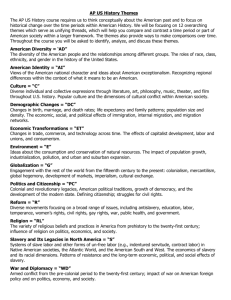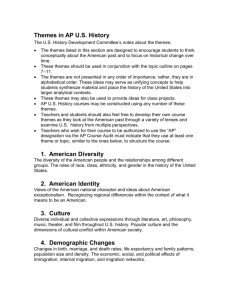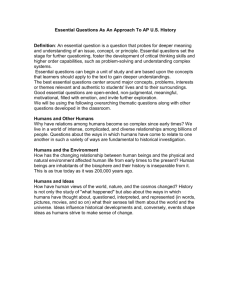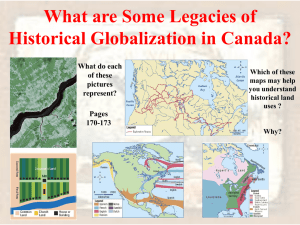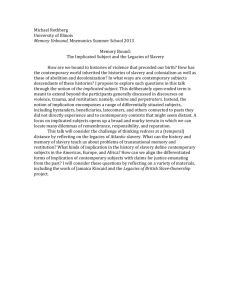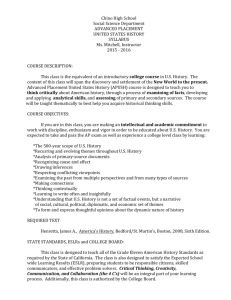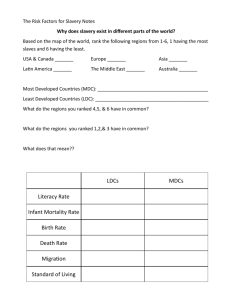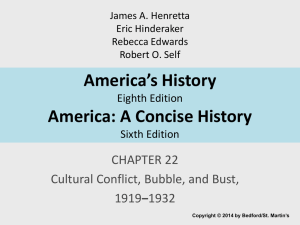Course Themes
advertisement
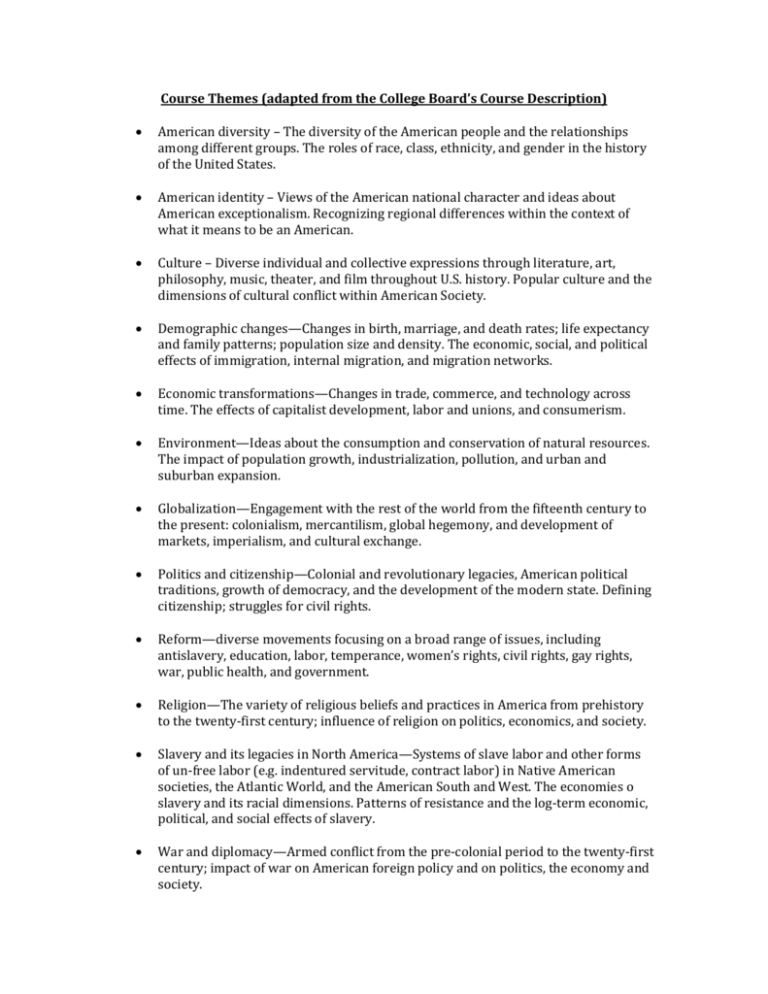
Course Themes (adapted from the College Board’s Course Description) American diversity – The diversity of the American people and the relationships among different groups. The roles of race, class, ethnicity, and gender in the history of the United States. American identity – Views of the American national character and ideas about American exceptionalism. Recognizing regional differences within the context of what it means to be an American. Culture – Diverse individual and collective expressions through literature, art, philosophy, music, theater, and film throughout U.S. history. Popular culture and the dimensions of cultural conflict within American Society. Demographic changes—Changes in birth, marriage, and death rates; life expectancy and family patterns; population size and density. The economic, social, and political effects of immigration, internal migration, and migration networks. Economic transformations—Changes in trade, commerce, and technology across time. The effects of capitalist development, labor and unions, and consumerism. Environment—Ideas about the consumption and conservation of natural resources. The impact of population growth, industrialization, pollution, and urban and suburban expansion. Globalization—Engagement with the rest of the world from the fifteenth century to the present: colonialism, mercantilism, global hegemony, and development of markets, imperialism, and cultural exchange. Politics and citizenship—Colonial and revolutionary legacies, American political traditions, growth of democracy, and the development of the modern state. Defining citizenship; struggles for civil rights. Reform—diverse movements focusing on a broad range of issues, including antislavery, education, labor, temperance, women’s rights, civil rights, gay rights, war, public health, and government. Religion—The variety of religious beliefs and practices in America from prehistory to the twenty-first century; influence of religion on politics, economics, and society. Slavery and its legacies in North America—Systems of slave labor and other forms of un-free labor (e.g. indentured servitude, contract labor) in Native American societies, the Atlantic World, and the American South and West. The economies o slavery and its racial dimensions. Patterns of resistance and the log-term economic, political, and social effects of slavery. War and diplomacy—Armed conflict from the pre-colonial period to the twenty-first century; impact of war on American foreign policy and on politics, the economy and society.
